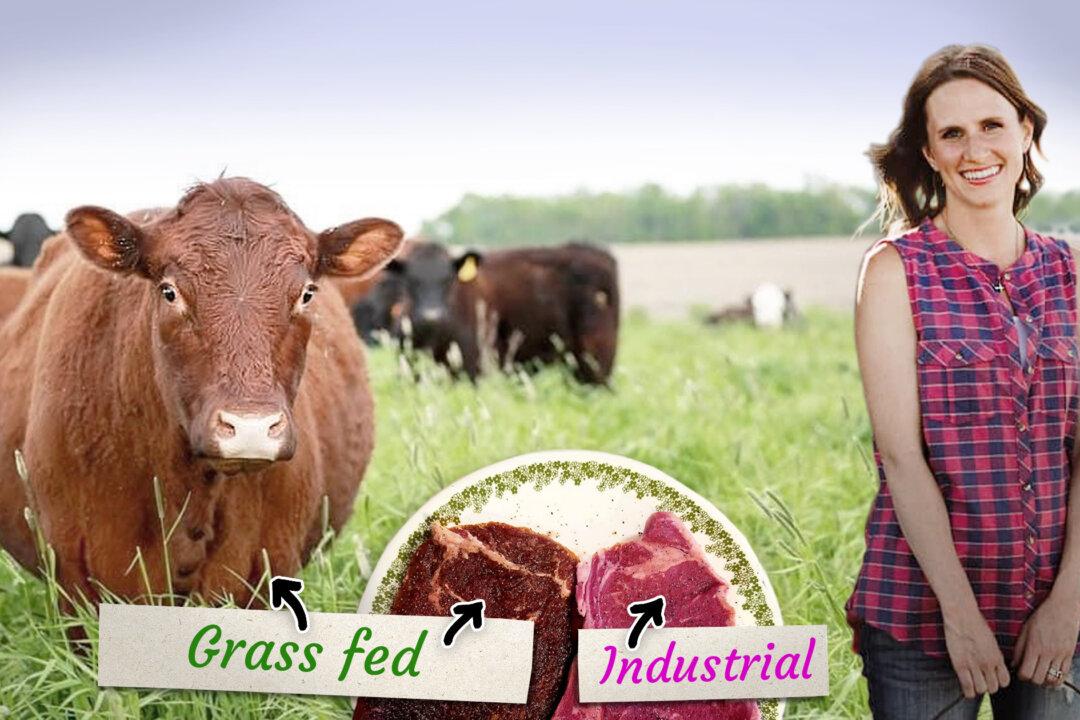A nurse, whose farmer father grew concerned with GMO food and the nation’s declining health, quit her job when she lost faith in the healthcare system’s ability to help prevent illness. Raised on a dairy farm, she turned to her childhood for answers and took her family back to the farm she once helped tend to start raising healthy, organic, grass-fed beef for a better future.
Registered nurse Sarah Fischer, 34, lives with her husband, 35-year-old power lineman Tom Fischer, and their three children on a small-town farm just outside Lafayette, Minnesota. Sarah left the healthcare profession in November 2020 to become a full-time organic farmer on the land she grew up on—a farm established in the 1890s that has been in her family for six generations.





